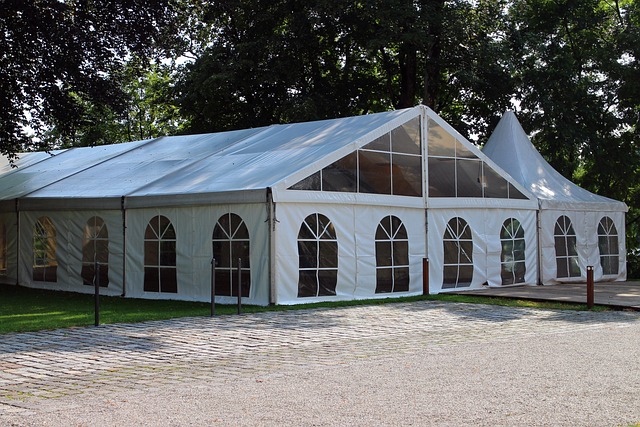Event planning for local businesses is a strategic endeavor that enhances networking opportunities, fostering connections and partnerships within the community, leading to business growth. Successful event planning involves tailoring the event itinerary to reflect local interests, selecting accessible venues that promote networking, and involving local vendors to maximize exposure. A key aspect is creating an engaging atmosphere with structured activities for meaningful interactions. Local businesses must deliver high-quality content, excellent customer service, and prompt follow-ups with potential leads to establish themselves as community leaders. This creates a network effect that boosts visibility and opens up new revenue streams. Strategic venue selection is critical, ensuring accessibility, professional ambiance, and practical amenities like internet and parking. The event's agenda should be dynamic, including expert panels, roundtable discussions, and interactive workshops to address local business challenges. Post-event, meticulous follow-up and outcome measurement are essential for evaluating success, with CRM systems aiding in personalized follow-ups to convert leads into clients. Through these strategies, event planning for local businesses can lead to meaningful relationships and a stronger community presence, with the potential to significantly benefit the local business ecosystem.
networking events serve as pivotal platforms for local businesses to expand their reach, forge new partnerships, and uncover lucrative opportunities. This article delves into the strategic planning of such gatherings, ensuring they not only resonate with attendees but also yield tangible business growth. From selecting the optimal venue to crafting a dynamic agenda, we explore best practices in event planning for local businesses. Our focus is on maximizing local impact through intentional engagement and networking, providing a comprehensive guide to cultivating meaningful connections and measuring the success of these endeavors effectively.
- Maximizing Local Impact: Leveraging Networking Events for Business Growth
- The Art of Strategic Venue Selection for Business Networking Events
- Cultivating Meaningful Connections: Tips for Effective Engagement at Networking Events
- Crafting a Compelling Agenda: Key Elements for a Successful Networking Event
- Measuring Success: Metrics and Follow-Up Strategies Post-Networking Event
Maximizing Local Impact: Leveraging Networking Events for Business Growth

Effective event planning for local businesses can significantly amplify the impact of networking events, fostering connections that translate into tangible business growth. Local businesses stand to benefit immensely from these gatherings by strategically positioning themselves among potential clients and partners. To maximize this opportunity, it’s crucial for organizers to craft an itinerary that aligns with the interests and needs of the local community. This involves selecting venues that are accessible and conducive to networking, coordinating with local vendors to showcase their products or services, and inviting a diverse array of attendees who can offer cross-promotional opportunities. By creating an environment where meaningful conversations flourish, businesses can not only raise their profile but also forge relationships that lead to long-term partnerships and collaborations. These events should be designed to facilitate engagement through structured activities, such as roundtable discussions or speed networking, allowing participants to make connections that are both relevant and valuable.
Moreover, local businesses looking to leverage networking events must consider the lasting impression they leave on attendees. This means delivering high-quality content, ensuring excellent customer service, and following up with leads in a timely manner. The goal is to establish a reputation as a go-to resource within the community, thereby creating a network effect that can lead to increased visibility and revenue streams. By meticulously planning each aspect of the event with the local context in mind, businesses can effectively use networking events as a platform for growth, ensuring their efforts result in meaningful relationships and a stronger presence within their community.
The Art of Strategic Venue Selection for Business Networking Events

When organizing networking events for local businesses, the selection of a strategic venue plays a pivotal role in the event’s success. A well-chosen location not only facilitates meaningful interactions but also reflects positively on the host organization and its partners. Venues that offer privacy with accessible amenities, such as high-speed internet and ample parking, cater to the practical needs of attendees. They should be centrally located to maximize attendance and convenience for a diverse range of businesses. Additionally, venues that provide a professional yet inviting atmosphere can enhance networking opportunities by encouraging engagement among participants. Event planners must consider factors like the venue’s capacity, ambiance, acoustics, and technological capabilities when planning these gatherings. The goal is to create an environment conducive to building relationships and fostering collaboration, which in turn, supports local business growth and development.
Incorporating the right elements into venue selection ensures that networking events for local businesses are not only productive but also leave a lasting impression. Venues with versatile spaces can accommodate different activities throughout the event, from formal presentations to informal breakout sessions. This flexibility allows for a dynamic flow of interactions and enables attendees to network in various settings. Moreover, venues that align with the brand image and values of the hosting business reinforce the event’s theme and purpose, creating a cohesive experience for all participants. Event planning for local businesses requires meticulous consideration of these factors to ensure that each networking event is an opportunity for connection and growth within the community.
Cultivating Meaningful Connections: Tips for Effective Engagement at Networking Events

Crafting meaningful connections at networking events is an art that, when mastered, can significantly benefit event planning for local businesses. The key to successful engagement lies in strategic preparation and genuine interaction. Prior to attending the event, research the attendees, particularly those from local businesses you wish to connect with. This preparation allows you to approach conversations with informed insights, demonstrating your interest in their endeavors and fostering a foundation for a mutually beneficial relationship.
Once at the event, prioritize active listening and thoughtful contributions to conversations. Ask open-ended questions that encourage attendees to share more about their business and personal experiences. This approach not only makes the interaction more engaging but also shows genuine interest, which is the cornerstone of forming lasting connections. Additionally, be mindful of body language and eye contact to convey attentiveness and engagement. By balancing the art of conversation with the professional intent behind your networking efforts, you can effectively enhance event planning for local businesses through the meaningful connections you make.
Crafting a Compelling Agenda: Key Elements for a Successful Networking Event

Crafting a compelling agenda is pivotal for the success of a networking event, especially when it’s tailored for local businesses looking to expand their reach and forge new connections. The agenda should be carefully structured to facilitate engagement, allowing participants to make meaningful interactions. A well-planned schedule begins with an introduction that sets the tone for the event and outlines its objectives. This is followed by a series of interactive sessions or workshops that address the needs and challenges faced by local businesses. Each segment should be designed to encourage dialogue and sharing of best practices, fostering an environment where attendees can learn from one another’s experiences.
To ensure the event remains engaging, incorporate a variety of activities such as panel discussions with industry leaders, roundtable sessions for peer-to-peer learning, and networking breaks that offer ample opportunity for attendees to connect on a personal level. The agenda should also include a segment dedicated to addressing common pain points in local business operations, providing solutions through expert insights or collaborative brainstorming. By thoughtfully integrating these key elements into your event planning for local businesses, you can create a networking event that is both productive and memorable, ultimately contributing to the growth and development of the local business community.
Measuring Success: Metrics and Follow-Up Strategies Post-Networking Event

When event planning for local businesses, the success of networking events hinges on meticulous follow-up strategies and the ability to measure tangible outcomes. To gauge the effectiveness of a networking event, businesses should establish clear metrics beforehand. These metrics might include the number of leads generated, the quality of connections made, attendee satisfaction, and potential sales opportunities arising from the event. Collecting this data enables businesses to understand the return on investment and the value of the event in their broader marketing strategy.
Post-event, a well-structured follow-up plan is critical. This involves segmenting leads based on interest level and engagement during the event. A personalized communication approach can then be applied, with tailored messages that reference specific discussions or shared interests from the event. Utilizing customer relationship management (CRM) software can streamline this process, ensuring timely and relevant follow-ups that increase the likelihood of converting contacts into clients. By consistently measuring success through these metrics and implementing effective follow-up strategies, local businesses can optimize their networking events to foster meaningful relationships and drive business growth.
In conclusion, the strategic planning of networking events presents a pivotal opportunity for local businesses to expand their reach and foster meaningful connections. By meticulously selecting venues that align with the target audience and purpose of the event, event planners can maximize local impact and create an environment conducive to business growth. Additionally, crafting a compelling agenda that includes diverse speaking sessions and interactive components is essential for captivating attendees’ interest. The art of engagement is refined through intentional conversation starters and active listening, ensuring that each interaction is valuable. Ultimately, the true measure of success lies in the follow-up actions and long-term relationships established, which underscores the importance of event planning for local businesses to thrive in a competitive landscape.
